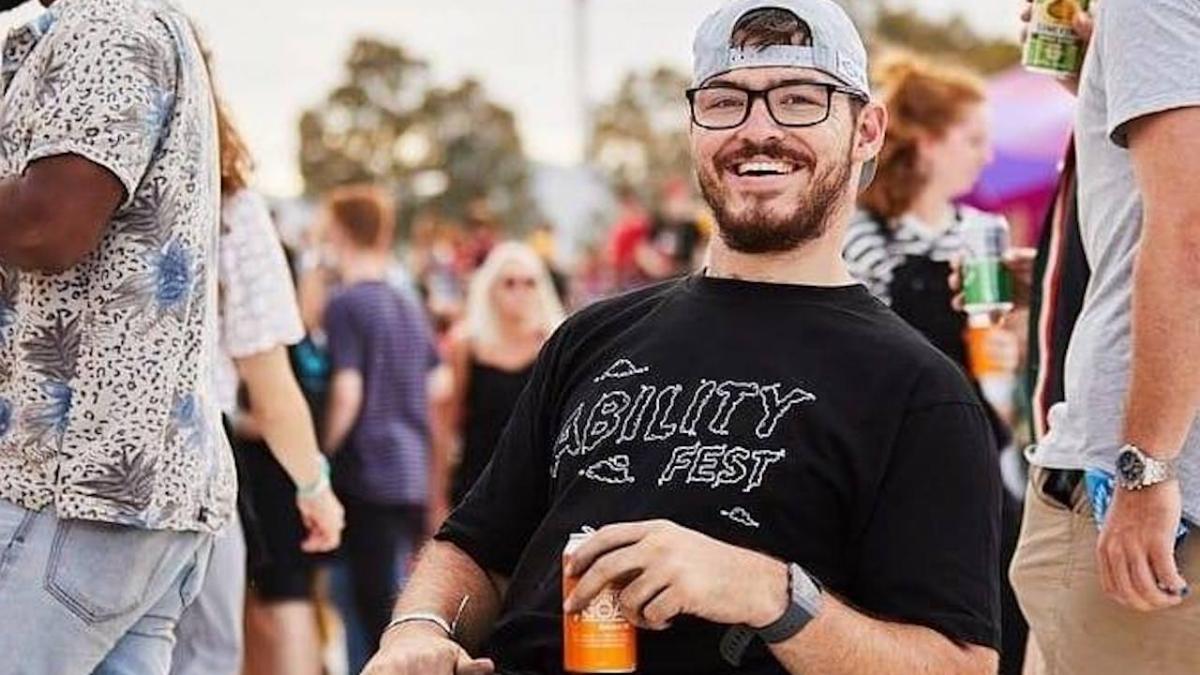
I was at the supermarket the other day buying some Cheezels. (I love Cheezels and I don’t feel they get enough credit.) A woman stopped me in the aisle. “I’m so sorry for what happened to you,” she said. I experience this far too often. I still wonder why people think my life and disability is something to be sorry for. I politely responded: “I should be apologising to you, you’re the one wearing socks and thongs, whatever happened to you must’ve been horrific.” All I’m saying is: if you put on a sock, commit to the shoe.
I was born with a neurological condition called Cerebral Palsy (CP) and diagnosed when I was 18 months old. My mum noticed that I wasn’t developing as I should be. She checked her baby book and based on my symptoms, CP was the one that wasn’t going to kill me so she chose that one.
Growing up, I felt this pressure that I had to be a Paralympian to be visible in society. Having a disability, I had to be extraordinary to be ordinary. And yet, people are still surprised when they see me out doing things independently. Most people with disability (PWD) just want what everyone else has: an opportunity to have a good job, friends and a relationship.
In Australia about 1 in 5 people (18%) have a disability. About half of those people don’t have a job. This may be because they don’t have the capacity and capability to maintain employment, or it could be because they’re like me – experiencing discrimination, being denied opportunities or being treated differently because of their disability.
My first job was at my local supermarket. I felt like my position was tokenistic. I ‘ticked a box’. It looked good to have the kid in the wheelchair working there. One day, my suspicions were confirmed when I noticed my name wasn’t on the roster for the upcoming week. My manager told me that it didn’t really matter when I came in.
We’ve come a long way towards our attitudes and perceptions of disability in Australia, in part thanks to the work of people like Dylan Alcott. And yet, there’s still so much to do.
One of the most common questions I get asked is: what’s wrong with the current system? (How much time have you got?) It’s called the Medical Model of Disability, which stems from the traditional view of looking at PWD as needing to be ‘fixed’. The Medical Model looks at what’s ‘wrong’ with PWD, rather than asking what they need.
It’s why advocates like myself are pushing for a Social Model of Disability, which says there’s nothing wrong with you – it’s society that needs to change. That might be physical access to a building, or people’s attitudes and perceptions. I hope that one day, I don’t get asked by a stranger at the pub, ‘What’s wrong with you?’ (By the way, the other question I get asked is, ‘Can you have sex?’ The answer is a big yes.)
The goal for PWD is not to live a ‘normal’ life. It’s to be given the opportunity to feel valued and contribute to society in the fullest way they possibly can. The work of organisations like Remove The Barrier – which works to literally remove barriers preventing people with disabilities from getting hired – is crucial in making this happen. It even has an email template you can send to HR!
Hiring a person with a disability shouldn’t just be about ticking a diversity box. And PWD shouldn’t need to be extraordinary for you to notice us. We just want the opportunities the rest of you lot have.
Oliver is a disability advocate, stand-up comedian, and one of our 27 Pedestrians. You can find him on Twitter here.



